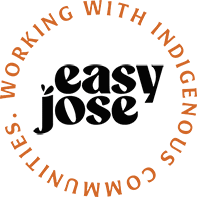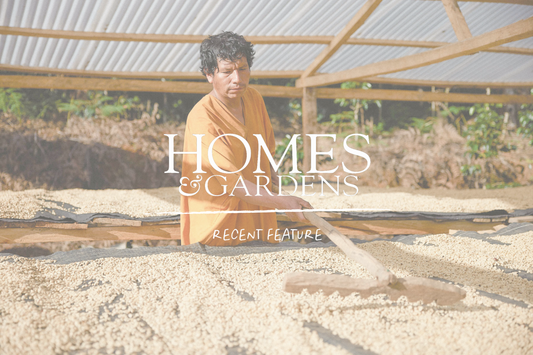Despite the seemingly difficult times we have all faced over the past year, there has probably never been a better time to consider taking the leap and opening your own specialty coffee shop.
Given the opportunities, we wanted to share with you some of the factors to consider when looking to set up your first site, with the hope that you’ll avoid some of the pitfalls and difficulties we faced when we set up our first cafes, back in the day.
We’ll walk you through the following key areas:
-
Location
-
Rent
-
Cashflow
-
Business Structure
-
Hiring and Training
-
Equipment
-
Choosing suppliers

The first piece of advice is, do it! Opening a café/speciality coffee shop is an immensely rewarding thing to do - being part of your local community and the relationships you will build, both working and customer, can be tremendously rewarding. However, you must go into it with your eyes wide open and with a solid plan in place. Here are some of the things to consider when planning your new business:
Location
Location location location - we’ve all heard it and yes, you should put significant value on the location you choose for your site. But it’s not just about being the most visible. Your location is inextricably linked to your customer base and therefore what you’re going to offer those customers.
When considering a potential site, think about the customers that will frequent the area. Do they work in the area (takeaway offering?) or are they looking for a more leisurely offering after spending the day shopping (post-covid🤞). Perhaps you are a neighbourhood café offering humble foods and a team that just know their regulars really well? Additionally, you must also consider parking. If it is not easy to get to your establishment, don’t expect to be run off your feet (unless you have a view someone would pay to see).

When looking for a great site, I’d recommend engaging with a local commercial property agent. They can find you your property, ensure that landlords take you seriously and help to negotiate the heads of terms of any deal, prior to these being passed onto your legal representation. Do engage proper legal representation, even if you know the landlord, this will be money well spent.
Rent & Rates
“How much rent can I afford!?” and “what will the rateable value on my property be!?” are both very important questions and ones you should be able to answer confidently before proceeding.
As a rule of thumb we aim to pay a rent of between 5-8% of expected turnover. Rateable value is another story however, current rateable values below £15k fall into the small business category and (I believe) default to zero rates to pay if you only have one site. You can search for you potential sites rateable value here:
Find and check your business rates valuation | GOV.UK
Rateable value is a complicated area and if you’re going to change use and layout, technically the rateable value can be affected. If you alter the layout significantly, do consider that the Council may come back and back date rates owed if your rates are calculated wrong - this works both ways, and if you feel you deserve a lower rateable value, you’ll need to pay a surveyor to assess your premises and file a report with the local council.
Cashflow - have you got enough capital?
It’s exciting starting up a new business, it’s been your dream for decades to own and run your own specialty coffee shop, especially after the years of graft you’ve been putting in behind your desk... BUT, cash flow and ensuring you have enough of it is crucial.
Bootstrapping is a thing and no, you don’t need a lot of cash to open a café, but you will very likely need a little more capital than you’ve planned for. If you’re going to be employing a team and building a business from scratch, you’re going to need a bit of contingency to ensure you get out of those darker earlier days and into the sunny established ones.

If you haven’t built your cash flow forecasts, considered VAT payments or taken PAYE and pension contributions into account, then please ensure you do so. These forecasts will tell you if your project is viable, if you’re going to be selling enough products, whether your margins will be high enough and whether you’re going to be able to pay back your friends, family or the banks in the timeframe you have told them you’ll be able to pay them back.
It’s hard to grapple with these figures and sometimes even know where to start. I would advise you to reach out to businesses you admire, consultants or others who might be able to help - we have a team full of experience here, feel free to reach out if you need advice.
Business Structure - VAT, Advisors
Legal entities and business structure is definitely one for the accountants and legal advisers - what we would say is that taking the right advice on structure early can save you a lot of pain and money later, so do take that advice as early as possible👍
Hiring & Training
If you’re going to be hiring a team, we don’t need to be telling you about the importance of in-depth, structured and ongoing training.
Developing a training programme for your business, that all team members work through is where good businesses turn into great businesses. Team members know what they need to learn and can revisit areas they’re unsure on, whilst not feeling lost and without guidance. In return you’ll have a happier team who are ready and willing to engage in the right way.
On-going learning and development however is also important and will help you retain your team for longer and, after spending years training them, it is of course an ambition to hold on to them. They’ll stay if they feel valued, have a purpose and can continue to grow in their role/profession. Start with core areas before expanding into new areas of learning; use online platforms like Barista Hustle (Easy Jose offers our client a complimentary account to this remote learning service, with in depth one on one training and roastery based learning, it’s brilliant).

Equipment Selection
Choosing your equipment is something you’ve probably already gone into - most customers I meet for the first time have already picked out their machine, it’s colour and 9/10 times is a La Marzocco... and they are right!!
Personally I love La Marzocco as a manufacturer - for me they are incredibly reliable, make incredible coffee, have superb temperature stability, can take a beating (in a busy environment) and are easily serviced in the U.K. They’re always my go-to.

As expected however, they will cost a pretty penny and you’ll need to ensure you budget well for the right kit. Ultimately, the right equipment is going to guarantee that your main product is of the highest quality and that your team enjoys working on it. Buy a poor or faulty kit and your product quality will absolutely suffer.
These days, customers expect a beautifully made coffee which they can likely get from several local competitors, ensure your offering is exceeding this and you’re already winning a battle. Your team will drive the quality as they receive more compliments, they’ll drive each other and great baristas will want to come and learn from and work for you.
Choosing your supply partners
One of the best parts in the process is choosing your supply partners! In a world increasingly focused on sustainability, I’d urge you to consider making it part of everything you do and ensure you communicate it to your customers effectively.
Reduce plastic usage, ensure packaging is biodegradable, source local milk from an independent dairy, stay organic wherever possible and order low-impact products that are truly moving to a sustainable position, rather than those that indicate they’ve started or aren’t really making a difference.
Thanks for taking the time to read the guide, and I hope you have learned something. Feel free to get in contact (below) if you have any burning questions.
Greg
If you would like to have a chat with us directly about this, register your interest below and tell us a bit about yourself to book a free 1-hour phone consultation.







